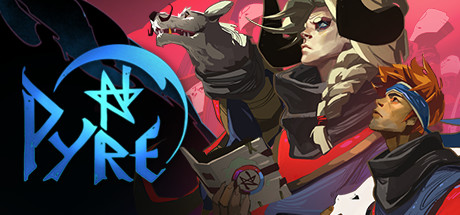Our class this entire semester has centered around the question of “genre” and what it means to define specific genres, so it only felt natural to close out the class with a game that seemed so amalgamous in regards to such a topic--Pyre. I think what really made this game stand apart from what we’ve played all semester so far was the strange mish-mash of different gameplay, which while at first made it difficult for me to really delve into the game as I am someone who tends to stick with the same genres most of the time, but it ended up being surprisingly fun in several of those aspects–I just didn’t know what to expect. I remember reading that it was a “sports” game back before I played it because I had only ever played Hades by SuperGiant, so I was curious as to how that would factor in: and I was not disappointed. I think overall I would define Pyre as a “sports” game, but at the same time this feels like it is almost reductive of the other elements that really make it stand out as its own thing, and I’m wondering if it is even necessary to define such a game into the box of a genre.
Which brings me to the question that we had all been asking from the get-go in this class– why is it important in the first place to define what “genre” a game is? I think that while we were able to come up with much reasoning throughout the semester, I feel as though Pyre is a game that might almost be better to not define as a genre as such. It has many different “genres” to it to a degree where omitting any of them might be not faithfully describing the game enough, and yet it still is defined as “sports”, “action”, “role-play”, “visual novel”, and many more things. Is this all arbitrary in the end?
In order to think of this more critically, I put myself into the shoes of the game developers of Pyre. While, of course, I could never know the real reasoning behind and real conversations leading to the creation of the idea for this game, I wondered deeply about what those conversations may have looked like–and I wonder if the question of “genre” did come up many times, I’d suppose. I think that it must have, but at the same time I think that it may have been put aside in lieu of gameplay-centered discussion and as well as narrative discussion, hand in hand throughout the whole game. Pyre itself is a game that puts ludology and narratology in such an interconnected relationship that one could not survive without the other. So this makes me wonder: in terms of game development, is it beneficial to define genre as a secondary measure to creating the game as to not force the game into a direction that might hinder it, or is it important/beneficial to use genres to your advantage in order to make a game that you know will resonate with players of such a genre? I almost feel like Pyre as a game was a leap of faith whether to people would enjoy it or not, and it seems to have paid off greatly.
So this brings us around to the question: are genre discussions even important to games? I think that personally, I do tend to like specific genres more than others, and do tend to gravitate toward specific genres even subconsciously, which is something that extends beyond games into the world of artistic media as a whole. However, I think that there are a few different ways in which this could be looked at. For one, from the perspective of the game developer, using a “genre” might be beneficial as a means to have a set audience from the start, but at the same time may fail to attract a wider audience apart from those players of that genre. This is something that Doki Doki Literature Club was able to do however, with an almost bait-and-switch strategy, but of course still lines up in the genre of “horror” overall I’d still argue. I think that otherwise, however, games like Pyre are able to thus attract such a wide audience as it feels like a game that many people would like for different aspects– even in our class, many hated the sports sections and loved the story, while many found themselves loving the sports sections. I myself am not a player of “sports” games, but the rest of the game with the extensiveness of it really drew me in apart from that section of it and made me enjoy it that much more.
And then there is the question of the consumer: as a player of games, is it important to try and broaden horizons away from the genres that we tend to play? I sometimes find myself wondering if I would enjoy certain games that are way out of what I’d usually play (such as many popular FPS’s that a lot of my friends play), so I wonder if looking toward genre as a marker is almost hindering in terms of finding new games to play. However, this is arbitrary it seems as I personally just, don’t really like FPS games. With this, I think there are many different approaches to seeking out different games, but to be fair, I don’t think I would have played Pyre had it not been for this class, and I’m very glad I did. So, is genre holding us back, or is it what drives us to try new things overall, as Pyre has?

